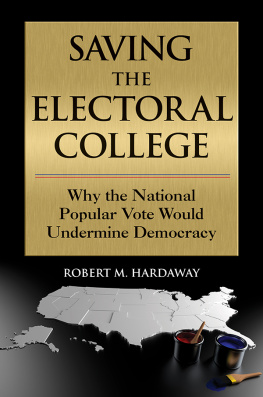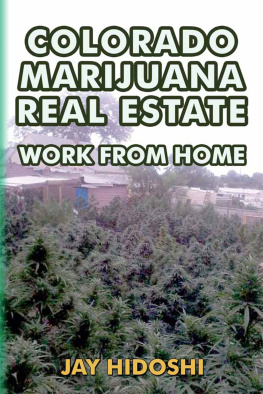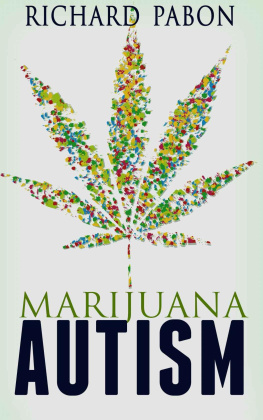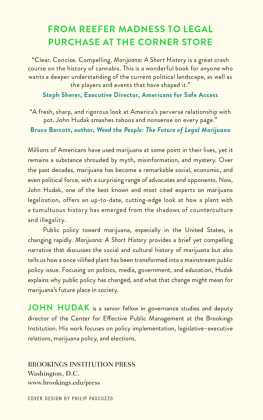Robert M. Hardaway - Marijuana Politics
Here you can read online Robert M. Hardaway - Marijuana Politics full text of the book (entire story) in english for free. Download pdf and epub, get meaning, cover and reviews about this ebook. publisher: ABC-CLIO, genre: Politics. Description of the work, (preface) as well as reviews are available. Best literature library LitArk.com created for fans of good reading and offers a wide selection of genres:
Romance novel
Science fiction
Adventure
Detective
Science
History
Home and family
Prose
Art
Politics
Computer
Non-fiction
Religion
Business
Children
Humor
Choose a favorite category and find really read worthwhile books. Enjoy immersion in the world of imagination, feel the emotions of the characters or learn something new for yourself, make an fascinating discovery.

- Book:Marijuana Politics
- Author:
- Publisher:ABC-CLIO
- Genre:
- Rating:4 / 5
- Favourites:Add to favourites
- Your mark:
- 80
- 1
- 2
- 3
- 4
- 5
Marijuana Politics: summary, description and annotation
We offer to read an annotation, description, summary or preface (depends on what the author of the book "Marijuana Politics" wrote himself). If you haven't found the necessary information about the book — write in the comments, we will try to find it.
Marijuana Politics — read online for free the complete book (whole text) full work
Below is the text of the book, divided by pages. System saving the place of the last page read, allows you to conveniently read the book "Marijuana Politics" online for free, without having to search again every time where you left off. Put a bookmark, and you can go to the page where you finished reading at any time.
Font size:
Interval:
Bookmark:
Marijuana Politics
Uncovering the Troublesome History and Social Costs of Criminalization
Robert M. Hardaway

Copyright 2018 by Robert M. Hardaway
All rights reserved. No part of this publication may be reproduced, stored in a retrieval system, or transmitted, in any form or by any means, electronic, mechanical, photocopying, recording, or otherwise, except for the inclusion of brief quotations in a review, without prior permission in writing from the publisher.
Library of Congress Cataloging-in-Publication Data
Names: Hardaway, Robert M., 1946 author.
Title: Marijuana politics : uncovering the troublesome history and social costs of criminalization / Robert M. Hardaway.
Description: Santa Barbara, California : Praeger, [2018] | Includes bibliographical references and index.
Identifiers: LCCN 2017037270 (print) | LCCN 2017045707 (ebook) | ISBN 9781440837074 (e-book) | ISBN 9781440837067 (hard copy : alk. paper)
Subjects: LCSH: MarijuanaPolitical aspectsUnited States. | MarijuanaLaw and legislationUnited States. | Marijuana abuseUnited States. | Drug legalizationUnited States.
Classification: LCC HV5822.M3 (ebook) | LCC HV5822.M3 H367 2018 (print) | DDC 362.29/55610973dc23
LC record available at https://lccn.loc.gov/2017037270
ISBN: 978-1-4408-3706-7 (print)
978-1-4408-3707-4 (ebook)
222120191812345
This book is also available as an eBook.
Praeger
An Imprint of ABC-CLIO, LLC
ABC-CLIO, LLC
130 Cremona Drive, P.O. Box 1911
Santa Barbara, California 93116-1911
www.abc-clio.com
This book is printed on acid-free paper 
Manufactured in the United States of America
Dedicated to
Judy Swearingen Trejos
Contents
Kyle Bershok Ames
Kyle Bershok Ames
Kyle Bershok Ames
Taylor Hart-Bowlan and Kyle Bershok Ames
Taylor Hart-Bowlan
Preface
In 2003, Praeger Publishers, now a part of ABC-CLIO, published my book No Price Too High: Victimless Crimes and the Ninth Amendment , which set forth the history of marijuana criminalization and provided an overview and analysis of then-current laws regulating its use in the context of the Ninth Amendment of the U.S. Constitution. Since that time, many states have legalized marijuana use for medical purposes, and others have also legalized its use for recreational purposes. As of the publication date of this book, 29 states have legalized the former and eight the latter.
Because of the many legal developments that have occurred since 2003, this book was conceived as an update of this earlier work, with particular attention to the most recent laws representing the accelerating trend toward legalization that occurred during the 2016 election in the form of popular initiatives and referenda. For this reason, much of the history and legal developments in the area of marijuana law that occurred before 2003 has been carried forward from the earlier work, and in some cases entire relevant sections have been reproduced, often verbatim, in the pages that follow. This has been made possible by the fact that I wrote the previous work and the copyright of No Price Too High is now held by ABC-CLIO, the publisher of this book.
As noted in the previous works foreword by former New Mexico Governor Gary Johnson, The title of No Price Too High sarcastically implies that, to our law and judicial system, there is no price too high to make something illegal, even if that only makes the problem worse. Using extensive references, Hardaway proves that the drug problem has only increased since its criminalization.
Certainly the premise of that title has not changed since 2003, as society continues to be afflicted by the horrifying spectacles of tens of thousands of murders committed by drug cartels, mass graves, extravagant expenditure of resources diverted from rehabilitation to enforcement, the release of thousands of violent criminals from our prison systems to make room for drug offenders, the de facto diversion to and financing of organized crime, an increase in drug use, and not least the corruption of governmentall on the purported rationale of keeping people from possibly jeopardizing their health by using marijuana, even for medicinal purposes.
Likewise, federal Judge John L. Kane wrote in a separate foreword to my previous work: We are indebted to professor Hardaway for bringing together the common effects of (drug crimes) and demonstrating quite persuasively that such laws produce unintended consequences far more damaging to our society than the defined crimes.
Although my name appears as author, this book is in large part the product of a collaborative effort of a small army of research assistants, students at the University of Denvers Sturm College of Law. Their names appear in the acknowledgments. Two of themKyle Bershok Ames and Taylor Hart-Bowlanwere particularly productive, and their contributions not only to underlying research but also to drafting several of the chapters herein are recognized by their bylines in those chapters.
A final note of confession. I myself have never even tried or experimented with marijuana, and have never had the slightest inclination to do so. Although this may seem to set me at a disadvantage in writing a book on marijuana, I believe it has allowed me to be more objective by focusing on the societal, rather than personal, effects of marijuana criminalization.
Acknowledgments
This book would not have been possible without the contributions of many dedicated people. First, there were the contributions of my two primary research assistants, Kyle Bershok Ames and Taylor Hart-Bowlan, both outstanding students at the University of Denvers Sturm College of Law, whose contributions were so substantial they are named as authors of , respectively.
The project was supported by a small army of dedicated law students, who enthusiastically volunteered for research assistant duties, meticulously scouring the libraries and databases as well as checking sources and citations. For this demanding, tedious, and labor-intensive work they deserve the most honorable mention: Josephine Bunker, Lindsay Gardner, Nicholas Gross, Michael Hartman, Megan Herr, Greg Huckaby, Caterina Lovell, Daniel Woodbridge, Zachary Schiffler, and Sahin Singh, who assisted Taylor Hart-Bowlan; and Mathew Spangler, Gracen Short, Mark Kollasch, Christopher Barbera, Hunter Heidrich, and Lindsey Idelberg, who assisted Kyle Bershok Ames.
Finally, much thanks to the entire staff at the University of Denvers College of Law, who labored diligently assisting in the preparation of the manuscript, and to Jessica Gribble of ABC-CLIO, whose scrupulous primary editing helped tighten the manuscript to a more readable size.
CHAPTER ONE
Marijuana: Politics, Partisanship, and Demagoguery
He who knows only his side of the case, knows little of that (but) wrong opinions and practices gradually yield to fact and argument.
John Stuart Mill
Every year, more than 480,000 Americans die as a result of using tobacco.
If a Martian were to visit the United States tomorrow and be shown these statistics, he might be surprised to learn that of three substancestobacco, alcohol, and drugsonly drugs, including marijuana, are criminalized. The Martian might also be surprised, indeed bewildered, to learn that even though alcohol and tobacco were legal substances and even subsidized, American society was willing to lose $180 billion annually, and tolerate the corruption and undermining of the political systemall to implement a drug war that has seen greater drug use after criminalization than before.
Next pageFont size:
Interval:
Bookmark:
Similar books «Marijuana Politics»
Look at similar books to Marijuana Politics. We have selected literature similar in name and meaning in the hope of providing readers with more options to find new, interesting, not yet read works.
Discussion, reviews of the book Marijuana Politics and just readers' own opinions. Leave your comments, write what you think about the work, its meaning or the main characters. Specify what exactly you liked and what you didn't like, and why you think so.








